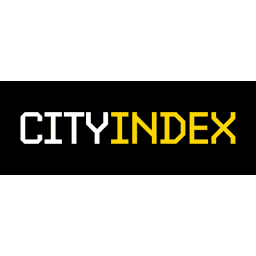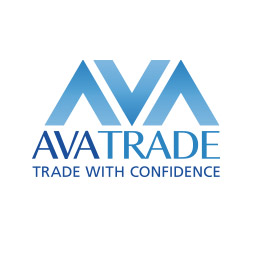Best High Leverage Forex Brokers UK
Leverage is a double edged sword that can increase the profits with smaller deposits but can also increase the risk of loosing the deposited capital. Choose from the best high leverage FCA regulated forex brokers in the UK.
Leverage allows traders to open positions that are worth more than the account balance equity. Leverage plays an important role in the trading of financial instruments in short tenure on small price movements. Forex trading won’t be feasible for retail traders without leverage but it also involves risk.
FCA-regulated brokers adhere to specific leverage limits set by the Financial Conduct Authority. For major forex pairs, the maximum leverage is 1:30, allowing traders to control a position worth 30 times their deposit. Other forex pairs and CFDs are limited to 1:20 leverage.
These restrictions are intended to enhance trader protection and curb risks associated with excessive leverage, aligning with the FCA’s commitment to fostering responsible trading practices in the financial markets. Traders should be mindful of these limitations to make informed and secure trading decisions.
Opening an account with an FCA-regulated broker is considered safer than a non-FCA-regulated broker. However, brokers that are not regulated by the FCA and accept clients from the UK can offer much higher leverage.
We have prepared a list of brokers that can be chosen in the UK for high-leverage trading. We have also covered everything you need to know about leverage in trading forex in the UK.
List of Best High Leverage Forex Brokers in the UK
- Pepperstone – Best High Leverage Broker with Multiple Platforms
- eToro – Best High Leverage Broker for Copy Trading
- CMC Markets – Best High Leverage Forex Broker with Highest Range of Markets
- City Index – Best Low Cost High Leverage Forex Broker in UK
- AvaTrade – Best High leverage forex broker with variable spread
In this list of forex brokers with high leverage, we have not included brokers that are not regulated by FCA but accept clients from the UK. Traders must understand that choosing a non-FCA regulated broker increases the third-party risk and is not recommended in the UK.
The maximum leverage at any FCA-regulated broker cannot be more than 1:30.
#1 Pepperstone – Best Overall High Leverage Broker in the UK
Pepperstone is among the best high leverage brokers in the UK. It is an FCA-regulated STP forex broker that allows trading through multiple trading platforms.
Pepperstone UK Ltd is the legal entity regulated by the FCA under license number 684312. It can be considered safe to trade with Pepperstone in the UK as multiple regulatory authorities apart from FCA regulate Pepperstone.
Pepperstone offers 2 account types with differences in the pricing structure. The Standard account incurs spreads starting from 0.6 pips while the Razor account offers spreads as low as 0.1 pips. The Razor account is a commission-based account with a commission of GBP 4.5 for a round trade of a standard lot.
Traders can choose between MT4, MT5, and the cTrader trading platform at Pepperstone. Each platform can be chosen with either of the account types with GBP as the base currency.
Each platform grants access to trade on more than 2500 instruments including 62 currency pairs with a maximum leverage of 1:30.
Pepperstone Pros
- Regulated by FCA in the UK
- GBP available as base currency
- Good customer support
- Multiple account types and trading platforms available
Pepperstone Cons
- The maximum leverage offered is low
- The commission is high on the razor account
#2 eToro – Best High Leverage Forex Broker for Copy Trading
eToro is a an FCA-regulated forex and CFD broker that only allows trading through its own trading platform. The interface at eToro is ideal for beginners and best suited for copy trading.
eToro (UK) Ltd is the legal entity that is regulated by the FCA under license number 583263. eToro is also regulated by ASIC of Australia and CySEC of the EU.
They only allow trading through a single account type with their proprietary trading platform. Commission-based pricing is not available at eToro apart from stocks CFD.
The average typical spread for EUR/USD at eToro is 1.1 pips. They also charge a commission of $5 on every withdrawal through any method. USD is the only available account currency and the traders need to deposit a minimum of $200 to start trading at eToro.
More than 300 instruments are available to trade including 49 currency pairs. The maximum leverage at eToro is 1:30 for major currency pairs and 1:20 for minor currency pairs. The copy trading feature at eToro is simple and free as any trader globally can be copied without any added commission.
eToro Pros
- FCA-regulated broker with user-friendly trading platforms
- Good trading platform for social trading
- Free and convenient copy trading services
- Social trading services and research tools are helpful
- Wide range of cryptocurrencies
eToro Cons
- Customer support is not good
- High non-trading fees with fixed withdrawal charges on each withdrawal
- GBP not available as base currency
- No other trading platform is supported
#3 CMC Markets – Best High Leverage Forex Broker with Highest Range of Markets
CMC Markets is an FCA regulated forex and CFD broker incorporated in 1989 for spread betting. It offers low spread trading on a large number of instruments.
CMC Markets UK PLC is the legal entity of CFD broker CMC Markets regulated by the FCA of UK under license number 173730. CMC Markets holds a regulatory license from multiple authorities globally. They are also listed on the London Stock Exchange with the ticker CMCU.
CMC Markets offer a single account type with spread and swaps as the only trading fees. The Spreads start from 0.6 pips and are 0.7 pips on average for EUR/USD currency pair.
CMC Markets allows trading on more than 11000 financial instruments. This includes 338 currency pairs at a leverage of 1:30 for major pairs. The number of available currency pairs at CMC Market is the highest among the FCA-regulated brokers in the UK.
CMC Markets Pros
- CMC Markets is regulated by FCA and several other authorities globally
- Good customer support available at all times during weekdays
- Decent fees with no commission apart from stock CFDs
- Wide range of trading instruments from multiple asset classes
CMC Markets Cons
- High minimum deposit amount
- You cannot change the leverage of your trades
- Lack of good educational materials for new traders
MT4 is the only option to choose with a trading account at CMC Markets. No other platforms are supported.
#4 City Index – Best Low-Cost High Leverage Forex Broker in the UK
City Index is an FCA-regulated forex and CFD broker that was incorporated in 1983. They offer the best pricing in the UK.
City Index is the trading name of the legal entity StoneX Financial Limited which is regulated by the FCA of the UK under license number 446717. They are also regulated in Australia and Singapore by ASIC and MAS respectively.
City Index only offers a single account type where trading fees are built into spreads and swaps. No trading commission is incurred from the traders in the UK for trading any instrument apart from stocks CFD.
The spreads at City Index start from 0.5 pips and the average for EUR/USD is 0.9 pips. The minimum deposit amount at City Index is $100 and the account can also be opened with GBP as the base currency.
City Index Pros
- No commission to trade forex instruments
- Spreads are very low
- GBP is available as base currency with free local bank transfers
- Highly regulated and has a strong reputation with a long history
- No hidden fees such as deposit or withdrawal fees
City Index Cons
- Customer support only available through live chat
- Complex structure and variation in account types
- Low leverage offered through Trader and Premium Trader accounts
#5 AvaTrade – Best High Leverage Forex Broker With variable spread
AvaTrade is a non-FCA regulated CFD broker with multiple trading platforms and high leverage on several financial instruments
AvaTrade is not regulated by FCA, hence it is not restricted to offer a maximum limit as per FCA regulatory compliance. AvaTrade offers leverage as high as 1:500 on major pairs. However, trading with AvaTrade in the UK can be risky.
AvaTrade is regulated by ASIC in Australia and FSCA in South Africa but is not regulated by the FCA of the UK. Hence the third-party risk of choosing AvaTrade in the UK is higher than any other FCA-regulated broker in the UK. Clients residing in the UK are registered under the regulation of the Central Bank of Ireland.
The spreads at AvaTrade are low with no trading commission involved. There is no option to choose between account types as only a single account type is available. AvaTrade supports MT4 as well as MT5 trading platforms. They also have a separate trading platform for copy-trading called Duplitrade.
What is Leverage? Explained With Example
In forex and other capital markets where the price movement is very small, you will need to invest a substantial amount for a small profit.
Suppose EUR/USD is trading at 1.2100, a 100 pips upward movement will take the price of the currency pair to 1.2200.
If you placed a buy order on EUR/USD at 1.2100 for 1 standard lot (100,000 units), you will need $121,000 in your account. The profit on closing the position at 1.2200 will be $1000.
Even the smallest possible trading volume i.e. 0.01 lots will require a minimum account balance of $1210. The profit on closing the position at 1.2200 will be $10 in this case.
It is not feasible for a retail trader to deposit such a large amount for much smaller profits. In such case, leverage comes into play to increase the gains and reduce the required account balance to open a position.
Leverage is a debt that is taken by traders to open bigger positions with a smaller account balance. This debt is paid back to the leverage provider when the position is closed. Leverage is generally defined by a ratio that depicts the proportion of equity to debt for trading positions.
For example, a leverage of 1:30 denotes that the traders can open positions worth $30 with a deposit of $1.
In this example, $1 is the minimum account equity required to open a position worth $30. The $1 will be called a margin requirement and the other $29 is the debt that will be paid back to the leverage provider when the position is closed.
Now let’s compare the above example of a EUR/USD trade with leverage. We will take leverage of 1:30 for the long position on EUR/USD trading at 1.2100 and an upward movement of 100 pips.
To open a long position of 1 standard lot on EUR/USD trading at 1.2100 with 1:30 leverage, traders will require
1.2100 X 100,000 X 1/30 = $4033
The profit on 100 pips movement will be $1000 which is the same with or without leverage.
To open a position of 0.01 lot on the same conditions, traders will require $40.33 in their account. The profit for 100 pips movement will be $10 in this case.
Cost of Leverage
To take the advantage of leverage, traders need to pay commissions called as swap fees or overnight charges to the leverage provider. In forex and CFD trading, swap fees are only applicable if a leveraged position is kept open overnight. No overnight charges will be incurred if the position is opened and closed on the same day.
Swap fees are not applicable on positions opened without leverage. Each broker may use a different method for the calculation of swap fees. Hence the swap fees vary from broker to broker. Traders must check and compare the swap fees before opening their accounts. In some cases, the swap fee is paid to the trader for positions kept open overnight.
The swap is actually a daily interest that is paid to the leverage provider. Since a trader has taken debt to open a trading position, there will be interest involved. The swap will be higher for a higher leverage ratio used and vice versa since the debt amount will be proportional to the leverage.
In a currency pair, the interest rate will be different for each currency involved. If a currency with a higher interest rate is bought in exchange for currency with a lower interest rate, the swap will be positive and will be added to the trader’s account. If the interest rate on bought currency is lower than exchanged currency, the swap will be negative and will be deducted from the trader’s account.
Leverage Limits in the UK
The Financial Conduct Authority (FCA) of the UK proposed to limit the maximum leverage that can be offered to retail traders by brokers and market makers. The maximum limit on the leverage ratios was proposed in December 2018 in the UK. The table below describes the maximum leverage that can be offered on derivative instruments including CFDs.
| Trading Instrument | Maximum Leverage in the UK for FCA-Regulated Brokers for Retail Clients |
|---|---|
| Forex (Majors) | 1:30 |
| Forex (all other) | 1:20 |
| Indices (major) | 1:20 |
| Indices (minor) | 1:10 |
| Gold | 1:20 |
| Commodities | 1:10 |
| Govt Bonds | 1:30 |
| Stocks | 1:5 |
| Cryptocurrencies | 1:2 |
Why do Forex Brokers Offer Leverage?
- Increase Trading Capacity: Leverage allows traders to control a larger position with a relatively small amount of capital, amplifying potential profits and losses.
- Attract More Clients: High leverage acts as an incentive for new traders with limited capital, making it a tool to attract a wider range of clients.
- Enhance Market Liquidity: Leverage encourages more trading activity, contributing to market liquidity and making it easier for traders to enter and exit positions.
- Competitive Edge: Offering high leverage can give brokers a competitive advantage, as traders often look for higher leverage options when choosing a broker.
- Profitability for Brokers: Increased trading volume, driven by leverage, can lead to higher revenue for brokers through spreads or commissions.
- Facilitate Short-Term Trading Strategies: Leverage is appealing to day traders and scalpers, supporting strategies that rely on small price movements.
- Market Accessibility: Leverage makes the Forex market more accessible by allowing traders to profit from small price movements with less capital.
- Alignment with Forex Market Characteristics: The use of leverage is aligned with the high liquidity and margin trading capabilities of the Forex market.
What is Leverage Risk?
It can be witnessed in the above example that leverage of 1:30 brought down the margin requirement from $121,000 to $4033. This proves that the involvement of leverage will increase the profit that can be made on the deposited amount.
However, leverage is called a double-edged sword as it can also lead to substantial losses and may wipe out the whole account balance in some cases. The risk of facing substantial losses due to high leverage is called leverage risk.
In the example above, a movement of 100 pips in the opposite direction will reduce the non-leveraged position by 0.8% ($1000 loss on $121,000). In a leveraged position, the loss will be 24.7% ($1000 on $4033). Hence, the loss percentage on the account balance will increase with an increase in leverage.
It is always important to keep safe leverage in forex and CFD trading. Beginners should always use safe leverages of less than 1:30. Leverage risk is the reason why the maximum leverage that can be offered by FCA-regulated brokers is capped at 1:30.
How to Choose a High Leverage Forex Broker in the UK?
If you are choosing a high-leverage broker in the UK, you are taking extra risk and must take precautionary measures to mitigate the risk. Following the aspects that must be considered while choosing a high-leverage forex broker in the UK.
Regulation
FCA is the financial regulatory authority in the UK that safeguards the interest of traders and investors in the financial markets. The financial service providers regulated by the FCA are considered safe and traders in the UK must always choose an FCA-regulated broker for forex and CFD trading.
High leverage increases the risk factor for retail traders and to protect the traders from the risk of substantial losses, FCA has capped the maximum leverage to 1:30 for major pairs and 1:20 for minor pairs. They have defined leverage limits for all instruments that must be followed by all the regulated entities.
Traders must always check for the FCA regulation on their website and cross-check it through the financial services register at the official website of the FCA.
Fees
Trading fees are the most looked at factor among retail traders globally. A forex and CFD broker can charge in multiple ways for offering trading services. The spread only and spread plus commission are the two most common pricing structures used by forex brokers.
Traders much check and compare each form of fee that will be charged by the brokers before opening their account with them. The trading fees include spread, commission, and swap fees. The non-trading fees include inactivity, deposit/withdrawal, account opening, currency conversion fees, etc.
Common Mistakes While Trading with Leveraged CFDs
When trading with leveraged Contracts for Difference (CFDs), it’s important to be aware of common mistakes that traders often make. Here are some pitfalls to avoid:
- Inadequate Risk Management: Failing to implement effective risk management strategies is a common error. Leverage amplifies both profits and losses, so it’s crucial to set proper risk parameters, such as placing stop-loss orders and managing position sizes to control potential losses.
- Excessive Leverage: Using too much leverage can be tempting, as it offers the possibility of higher returns. However, it also increases the risk of significant losses. It’s crucial to exercise caution and use leverage prudently, considering your risk tolerance and trading experience.
- Neglecting Fundamental Analysis: While technical analysis is important, disregarding fundamental analysis can be a mistake. Economic news, earnings reports, and geopolitical events can greatly impact the markets. Ignoring these factors may result in unexpected losses or missed opportunities.
- Chasing Losses: Attempting to recover losses quickly by making impulsive trades or increasing position sizes is a common mistake. Emotional decision-making often leads to further losses and undermines a disciplined trading approach. It’s crucial to stick to your trading plan and avoid chasing losses.
- Insufficient Education and Research: Insufficient knowledge and research can be detrimental when trading leveraged CFDs. Understanding the instruments, underlying markets, and factors influencing their prices is crucial. Educate yourself on technical analysis, risk management, and market dynamics to make well-informed trading decisions.
- Neglecting Stop-Loss Orders: Failing to utilize stop-loss orders or placing them too close to the entry price can result in premature stop-outs. Setting appropriate stop-loss levels based on market conditions and allowing adequate room for price fluctuations is essential to manage risk effectively.
- Overtrading: Overtrading is a common mistake driven by impatience, fear of missing out (FOMO), or a desire for constant market activity. Engaging in excessive trading can lead to fatigue, poor decision-making, and increased transaction costs. Practicing patience, waiting for high-quality setups, and adhering to your trading plan are crucial.
Trading leveraged CFDs comes with inherent risks. It’s vital to approach it with caution, develop a solid trading plan, implement effective risk management techniques, and continuously enhance your trading skills through education and experience.
Tips for Trading with a High-Leverage Broker
- Educate Yourself: Understand leverage and its impact.
- Risk Management: Only use money you can afford to lose.
- Set Stop-Loss: Protect against excessive losses with stop-loss orders.
- Diversify: Spread risk by trading multiple assets.
- Short-Term Trades: High leverage is better suited for short-term trading.
- Stay Informed: Keep up with market news and events.
- Practice: Test strategies in a demo account first.
- Discipline: Control emotions and stick to your plan.
- Choose Wisely: Select a reputable and regulated broker.
Comparison Table of Best High Leverage Forex Brokers in the UK
| Broker Name | Highlights | Trading Fees (Benchmark EUR/USD Standard Accounts) | Account Minimum | Max. Leverage | Learn More |
|---|---|---|---|---|---|
|
Pepperstone UK Ltd is authorized by FCA under FRN (Reference No.) 684312. |
Commissions
Minimum spread of 0.7 pips
with Standard Account |
Account Minimum
0
|
Max. Leverage
1:30 for forex
|
Open Account
on Pepperstone |
|
|
eToro is authorized by FCA under FRN (Reference No.) 583263. |
Commissions
Minimum spread of 1.1 pips
with Standard Account |
Account Minimum
$100
|
Max. Leverage
1:30 for forex
|
Open Account
on eToro |
|
|
StoneX Financial is authorized by FCA under FRN (Reference No.) 446717. |
Commissions
Minimum spread of 0.8 pip
with Standard Account |
Account Minimum
$100
|
Max. Leverage
1:30 for forex
|
Open Account
on City Index |
|
|
CMC Markets is authorized by FCA under FRN (Reference No.) 173730. |
Commissions
Minimum spread of 0.6 pips
with Standard Account |
Account Minimum
$0
|
Max. Leverage
1:30 for forex
|
Open Account
on CMC Markets |
FAQs on Best High Leverage Brokers UK
Which broker has highest leverage?
As per the FCA regulatory compliance, all brokers regulated and licensed by FCA can offer a maximum of 1:30 leverage on major pairs and 1:20 on minor pairs and other CFDs. No FCA-regulated broker can offer more than 1:30 leverage in the UK.
Brokers that are not regulated by FCA and accept clients from the UK may offer higher leverage but choosing them is not recommended in the UK as they possess high third-party risk and can be fake.
Is high leverage in forex good?
Leverage allows traders to open bigger positions with smaller deposits but high leverage will also increase the losses booked on trades. At times, trading with leverage can also wipe out whole account equity if the leveraged position is not closed.
What is the highest leverage in trading?
Forex and CFD brokers may offer leverage as high as 1:1000 but under FCA regulation, brokers are not allowed to offer the such high leverage. FCA-regulated brokers cannot offer more than 1:30 on forex majors and 1:20 on indices and gold. High leverage can be very risky for retail traders.
What leverage is good for $1000?
The suitable leverage depends on the risk you are willing to take. Leverage of 1:10 can be considered safe for retail traders. Experienced traders can use high leverage with stop loss and limit orders.
How does 20x leverage work?
A leverage of 20x or 1:20 means you can trade on the financial instrument with 20 times more than the deposit amount. In other words, to open a trading position of $20,000, traders will need to deposit $1000.
What leverage is too high?
In UK, the regulated brokers are restricted to offering leverage of 1:30 for major pairs and 1:20 for minor pairs. If a trader in the UK is trading with more than 1:30 leverage, it is considered high and too risky for retail traders.
Does high leverage increase profit?
Yes, high leverage can increase the profit on the same deposited amount but it will also increase the loss. With high leverage, profit, as well as loss amount, will increase and the risk will be high. It is better to use low leverage in the initial phase of trading.
Which broker has a 1 1000 of leverage?
The leverage limit for major pairs in the UK is 1:30. Any broker that offers more than this is not regulated by the FCA of the UK and is not recommended due to high third-party risk. There are several brokers in the UK that offer 1:1000 leverage but these are not safe for retail traders.
What is the safest leverage in forex?
As per FCA regulation, 1:30 is the maximum leverage that can be offered to retail clients for trading major pairs in the UK. According to our analysis, a leverage of 1:10 is considered safe to trade for beginners.





